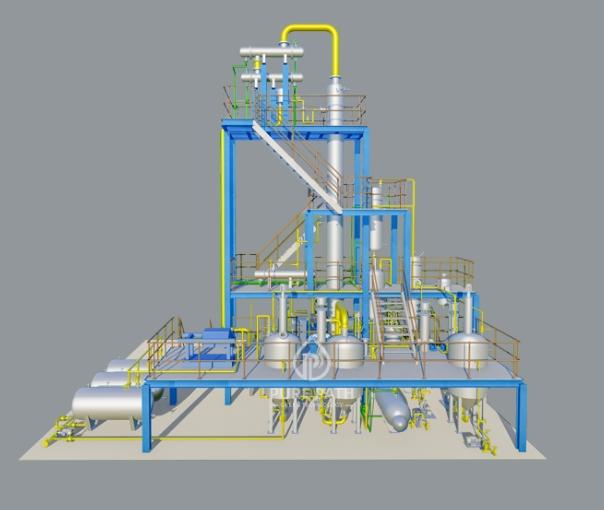Understanding the Solvent Extraction Process in Base Oil Refining

Base oils, the primary components of lubricants, are essential in keeping machinery and engines running smoothly. They serve as the foundation for various automotive and industrial lubricants. However, base oils are not created equal, and to obtain the desired properties, they undergo a refining process. One of the crucial steps in base oil refining is solvent extraction. In this article, we will delve into the solvent extraction process, its importance, and how it contributes to producing high-quality base oils.
What Is Solvent Extraction in Base Oil Refining?
Solvent extraction, also known as liquid-liquid extraction, is a separation process used in the refining of base oils. It involves the selective removal of undesirable components from the crude oil feedstock, leaving behind a purer base oil. The objective is to remove impurities such as aromatics, sulfur compounds, and contaminants, resulting in a base oil with improved properties.
The Solvent Extraction Process
The solvent extraction process in base oil refining can be summarized in several steps:
1. Dilution: The first step involves diluting the crude oil feedstock with a suitable solvent. Common solvents used in this process include furfural, phenol, and N-methyl-2-pyrrolidone (NMP).
2. Extraction: The diluted feedstock is then introduced into an extraction unit, where it comes into contact with the solvent. The solvent selectively dissolves the undesirable components, while the base oil remains relatively unaffected.
3. Separation: After the extraction phase, the mixture of base oil, solvent, and dissolved impurities is separated into two layers. The impurities form the lower layer, while the upper layer contains the base oil and the solvent.
4. Recovery: The upper layer, containing the base oil and solvent, is processed further to separate the solvent from the base oil. The solvent is typically recovered and reused in the extraction process, making it an environmentally friendly and cost-effective method.
5. Hydrofinishing: While solvent extraction removes many impurities, further refining may be necessary to achieve the desired base oil specifications. This often involves hydrofinishing, a process that can remove residual impurities and improve base oil properties.
Importance of Solvent Extraction
Solvent extraction plays a critical role in base oil refining for several reasons:
1. Impurity Removal: Solvent extraction effectively removes impurities such as aromatics, sulfur compounds, and contaminants. This results in a base oil with enhanced purity, making it suitable for high-performance lubricants.
2. Improved Properties: The removal of impurities through solvent extraction leads to a base oil with improved properties, including higher viscosity index, lower sulfur content, and enhanced oxidation stability.
3. Consistency: Solvent extraction allows for the production of base oils with consistent and reliable properties, ensuring that lubricant manufacturers can create products that meet specific performance requirements.
4. Environmental Benefits: The solvent extraction process is an environmentally friendly method as it enables the recovery and reuse of the solvent. This not only reduces waste but also minimizes the environmental impact of the refining process.
Challenges in Solvent Extraction
While solvent extraction offers numerous advantages, it also comes with challenges:
1. Energy Intensive: The process can be energy-intensive, particularly during solvent recovery and regeneration. Energy-efficient technologies are continually being developed to address this issue.
2. Solvent Handling: The handling and disposal of solvents require careful management to ensure safety and environmental responsibility.
3. Complexity: Solvent extraction is a complex process that requires precise control and monitoring to achieve the desired base oil specifications.
Conclusion
Solvent extraction is a fundamental step in the base oil refining process, contributing to the production of high-quality base oils with enhanced purity and improved properties. It is a critical process that ensures the consistency and reliability of base oils, which, in turn, form the basis for the lubricants that keep our engines and machinery running smoothly. As technology advances, solvent extraction methods continue to evolve, making the production of superior base oils more efficient and environmentally friendly.
- Art
- Causes
- Crafts
- Dance
- Drinks
- Film
- Fitness
- Food
- Games
- Gardening
- Health
- Home
- Literature
- Music
- Networking
- Other
- Party
- Religion
- Shopping
- Sports
- Theater
- Wellness
- IT, Cloud, Software and Technology


